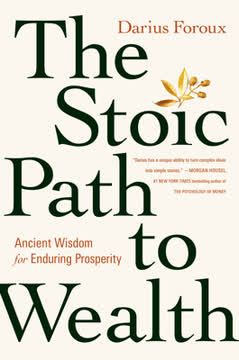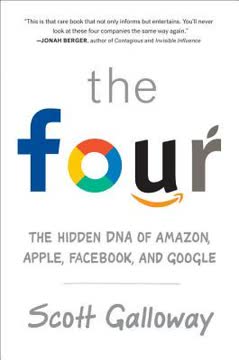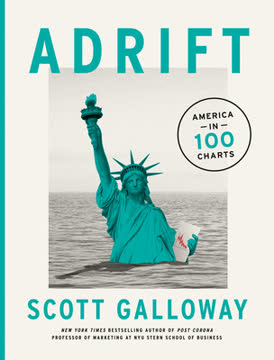重点摘要
1. 经济安全是摆脱财务焦虑
经济安全是获得足够的资产——不是收入,而是资产——使其产生的被动收入超过你选择的支出水平——你的“燃烧率”。
定义你的财务目标。 经济安全不是达到一个特定的数字,而是达到一个点,在这个点上,你的投资被动收入超过你选择的生活费用。这使你能够专注于人际关系和个人成长,而不必承受持续的财务压力。
计算你的目标。 估算经济安全所需的资产:
- 确定你的年度“燃烧率”(支出+税收)
- 将该数字乘以25(假设年回报率为4%)
这将为你提供一个大致的投资资产目标,以产生足够的被动收入。
转变心态。 真正的财富是拥有选择和控制时间的能力,而不仅仅是积累更多的财产。专注于建立能产生被动收入的资产,而不仅仅是增加工资。
2. 品格和行为是财富积累的关键
经济安全不是源于智力活动,而是行为模式的结果。
养成良好习惯。 财务成功根植于一致的行为,而不仅仅是知识。专注于培养与长期财务目标一致的习惯:
- 仔细记录支出
- 在消费前自动储蓄
- 定期投资,无论市场状况如何
- 不断学习个人理财知识
实践斯多葛主义。 采用斯多葛原则来建立韧性并做出更好的财务决策:
- 专注于你能控制的事情
- 为长期收益延迟满足
- 培养对现有事物的满足感
- 从挫折中学习而不气馁
建立支持性社区。 与鼓励负责任财务行为并分享你价值观的人在一起。寻找导师和责任伙伴,帮助你保持正轨。
3. 追随你的才能,而不是激情
精通可以引发激情。
识别你的优势。 与其追逐难以捉摸的激情,不如专注于发展你天生擅长或容易掌握的技能。这些才能更有可能带来职业成功和财务回报。
投资于技能发展。 一旦识别出你的才能,投入时间和精力来磨练这些技能。在你选择的领域不断改进和精通,将增加你在就业市场的价值,并开辟更多晋升和高收入的机会。
让激情自然生长。 随着你在选择的领域变得更加熟练和成功,你可能会对工作产生真正的激情。这种源于能力和成就的激情,比仅仅基于初始兴趣的激情更持久。
4. 专注于职业发展和收入最大化
努力工作并不等于品格。
优先考虑职业发展。 在职业生涯的早期阶段,集中精力发展技能,建立专业网络,并为快速晋升做好准备。这可能需要在生活的其他方面做出牺牲,但它为长期财务成功奠定了基础。
最大化你的收入潜力。 寻找与技能匹配的高薪行业和职位。考虑:
- 搬到就业市场更好的城市
- 积极谈判薪资和福利
- 采取有计划的风险来推进职业生涯
- 不断更新技能以保持相关性
平衡努力工作与策略。 虽然努力工作很重要,但这不足以成功。将勤奋与聪明的职业举措、人际关系建设和持续学习相结合,以最大化收入和机会。
5. 时间是财富创造中最宝贵的资产
投资就像种植橡树。最好的开始时间是十年前。其次是现在。
利用复利。 尽早开始投资,以利用复利的力量。即使是小额投资,随着时间的推移,由于复利效应也能显著增长。
优先考虑长期思维。 抵制只关注短期收益或即时满足的诱惑。以多年的视角做出财务决策,考虑它们将如何影响未来的自己。
利用时间的关键策略:
- 自动储蓄和投资
- 最大化税收优惠账户(如401(k)和IRA)
- 再投资股息和资本收益
- 在市场低迷期间保持耐心
6. 多元化是长期财务成功的关键
多元化是拓宽风险配置的艺术和科学,以便没有单一失败或全球变化能致命地伤害你。
在资产类别中分散风险。 投资于股票、债券、房地产和其他资产的组合,以减少整体投资组合的波动性,并防范特定行业的低迷。
地理多元化。 考虑投资于国内和国际市场,以对冲国家特定的经济风险。
定期再平衡。 随着市场条件的变化,定期调整投资组合以保持所需的资产配置。
多元化的好处:
- 减少整体投资组合风险
- 平滑长期回报
- 提供不同的增长机会
- 帮助防范灾难性损失
7. 投资低成本的被动指数基金以获得稳定回报
从长远来看,没有人能击败它——无论多么受过良好教育、资本充足或人员配备。
接受被动投资。 研究一致表明,大多数主动投资者在长期内未能击败市场平均水平。与其尝试挑选个股或把握市场时机,不如专注于跟踪广泛市场指数的低成本指数基金。
最小化费用。 高投资费用会随着时间的推移显著侵蚀回报。选择费用率低于1%的低成本指数基金或ETF。
指数投资的主要优势:
- 广泛的市场曝光
- 较低的成本
- 税收效率
- 减少管理投资的时间和压力
8. 理解税收对财富保值至关重要
我相信公民对国家和家庭都有双重义务,支付最低合法税款。
了解税收基础知识。 了解不同类型的税收(收入税、资本利得税、财产税)及其对财富积累的影响。
利用税收优惠账户。 最大化对401(k)和IRA等退休账户的贡献,以减少当前税负,并允许税收递延或免税增长。
税收优化策略:
- 税收损失收割
- 战略性慈善捐赠
- 收入和扣除的时间安排
- 了解州和地方税收影响
- 考虑Roth转换
9. 房地产可以是强大的财富积累工具
房地产是资产类别中的皇帝。
考虑购房。 购买房屋可以通过强制储蓄(按揭付款)和潜在升值来有效积累财富。它还提供税收优惠和稳定性。
探索投资物业。 租赁房地产可以提供稳定的收入和长期升值。考虑:
- 单户住宅
- 多单元物业
- 商业房地产
了解风险。 房地产投资需要大量资本、积极管理,并且存在市场低迷和意外维护成本等风险。在投资前彻底了解相关知识。
10. 人际关系和社区是最终的财富
生活中有意义的一切都与他人有关。
投资于人际关系。 真正的财富不仅限于财务资产,还包括丰富的人际关系和支持性的社区。
在积累财富的同时平衡生活体验。 虽然追求财务目标很重要,但不要为了未来的安全而牺牲所有当前的享受。在此过程中找到创造有意义的体验和回忆的方法。
回馈社会。 随着财富的积累,考虑如何利用你的资源对他人和社区产生积极影响。慈善和指导可以提供深刻的个人满足感,并创造超越物质财富的持久遗产。
最后更新日期:
FAQ
What's The Algebra of Wealth about?
- Focus on Financial Security: The book by Scott Galloway outlines a formula for achieving economic security through understanding wealth, time, and investment strategies.
- Four Actionable Principles: It distills wealth creation into four key principles: Stoicism, Focus, Time, and Diversification, helping readers build a strong financial foundation.
- Real-World Applications: Galloway uses personal anecdotes and examples from successful individuals to illustrate different paths to wealth, providing practical advice for navigating capitalism.
Why should I read The Algebra of Wealth?
- Practical Financial Guidance: Offers actionable insights for improving financial literacy and security, with real-world strategies that can be applied immediately.
- Unique Perspective: Combines personal experiences with broader economic insights, making complex financial concepts accessible and engaging.
- Holistic Approach: Emphasizes the importance of character, relationships, and community in achieving wealth, leading to a more fulfilling life.
What are the key takeaways of The Algebra of Wealth?
- Wealth Equals Economic Security: Defines wealth as the absence of economic anxiety, focusing on what you keep rather than what you earn.
- Time is Valuable: Highlights the power of compounding and the importance of starting early with investments, emphasizing time management.
- Character Matters: Stresses the importance of strong character and intentional decisions for long-term success, reflecting in financial outcomes.
How does Scott Galloway define "wealth" in The Algebra of Wealth?
- Absence of Economic Anxiety: Wealth is having sufficient assets so that passive income exceeds your burn rate, allowing you to live without constant pressure to earn.
- Focus on Assets: Emphasizes that wealth is about what you keep and how you manage it, not just income.
- Personalized Definition: Encourages readers to determine their own financial goals and definitions of wealth, as it varies from person to person.
What is the "Permission Slip" concept in The Algebra of Wealth?
- Seeking Wealth is Acceptable: Addresses societal stigma around pursuing wealth, arguing that seeking economic security is not immoral or greedy.
- Focus on Personal Goals: Reminds readers that their financial journey is personal and should not be influenced by societal pressures.
- Empowerment Through Wealth: Suggests that seeking wealth can reduce economic anxiety and lead to better relationships and a more fulfilling life.
What is the "Number" concept in The Algebra of Wealth?
- Calculating Your Financial Goal: Refers to the asset base needed for economic security, calculated as your desired burn rate multiplied by 25.
- Personalized Financial Planning: Encourages assessing spending habits and lifestyle to determine your "Number," clarifying financial goals.
- Long-Term Perspective: Understanding your "Number" aids in better long-term financial planning and investment strategies.
What does Scott Galloway mean by "Stoicism" in The Algebra of Wealth?
- Intentional Living: Stoicism is about living a deliberate life, focusing on saving and building character, resisting modern temptations.
- Character Development: Emphasizes that strong character is essential for making sound financial decisions, teaching resilience.
- Community and Relationships: Highlights the value of community and relationships in achieving wealth, crucial for personal and financial success.
How does The Algebra of Wealth address the concept of time?
- Time as a Currency: Argues that time is the most valuable resource, impacting financial success based on how it's allocated.
- Compounding Effects: Discusses the power of compounding in finance, personal growth, and relationships, leading to significant results.
- Long-Term Planning: Encourages thinking about future selves and sacrifices needed today for long-term benefits.
What is the significance of "Diversification" in The Algebra of Wealth?
- Investment Strategy: Diversification is key for managing risk in investments, spreading investments across different asset classes.
- Understanding Risk and Return: Emphasizes that higher potential returns come with increased risk, balanced by diversification.
- Long-Term Wealth Building: A diversified portfolio is essential for long-term wealth accumulation, weathering market fluctuations.
What is the "three-bucket model" for budgeting in The Algebra of Wealth?
- Organizing Finances: Categorizes finances into day-to-day consumption, intermediate expenses, and long-term savings for effective prioritization.
- Day-to-Day Consumption: Includes essential expenses like housing and food, advising to keep spending within the waterline budget.
- Long-Term Savings Focus: Encourages allocating excess funds into long-term savings to build wealth over time.
How does The Algebra of Wealth address the role of debt in personal finance?
- Debt as a Tool: Views debt as a double-edged sword, useful for building wealth when used strategically for long-term assets.
- Leverage for Growth: Explains how leveraging debt can amplify returns, such as using a mortgage to buy a home.
- Caution with Short-Term Debt: Warns against short-term debt with high-interest rates, advising careful management and prioritization of paying it down.
What are the best quotes from The Algebra of Wealth and what do they mean?
- "Money doesn’t talk, it swears.": Highlights the emotional weight of money and its impact, suggesting financial stress leads to anxiety.
- "You are what you do, not what you say you will do.": Emphasizes the importance of actions over intentions, reminding that consistent behavior defines success.
- "The best time to start is ten years ago. The second-best time is right now.": Underscores the urgency of taking action toward financial goals, encouraging immediate progress.
评论
《财富代数》获得了大多数正面评价,读者称赞其实用的理财建议、易于理解的内容以及对年轻人的价值。许多人欣赏加洛韦的写作风格、幽默感和个人轶事。书中涵盖了投资、储蓄和财富积累等主题,重点在于品格培养。一些批评意见包括某些领域缺乏深度以及偶尔重复常见的理财智慧。总体而言,评论者推荐这本书作为个人理财和财富积累策略的良好入门读物。
Similar Books

















